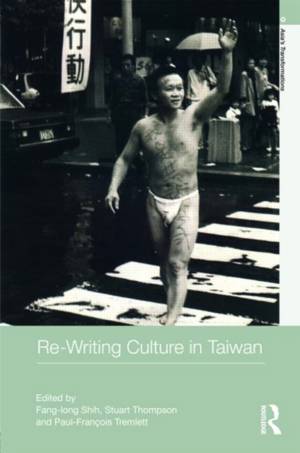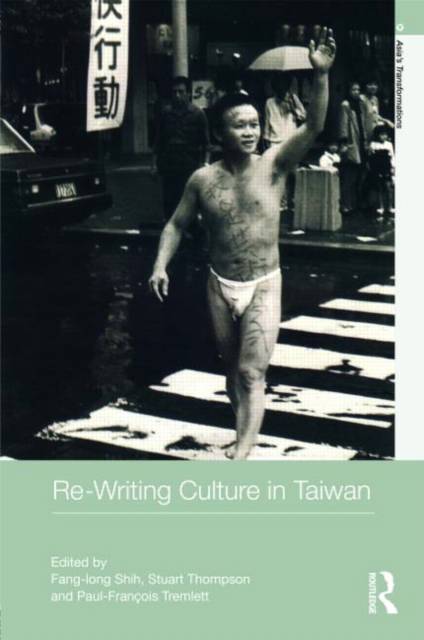
- Retrait gratuit dans votre magasin Club
- 7.000.000 titres dans notre catalogue
- Payer en toute sécurité
- Toujours un magasin près de chez vous
- Retrait gratuit dans votre magasin Club
- 7.000.0000 titres dans notre catalogue
- Payer en toute sécurité
- Toujours un magasin près de chez vous
Description
This inter-disciplinary volume of essays opens new points of departure for thinking about how Taiwan has been studied and represented in the past, for reflecting on the current state of 'Taiwan Studies', and for thinking about how Taiwan might be re-configured in the future.
As the study of Taiwan shifts from being a provincial back-water of sinology to an area in its own (albeit not sovereign) right, a combination of established and up and coming scholars working in the field of East Asian studies offer a re-reading and re-writing of culture in Taiwan. They show that sustained critical analysis of contemporary Taiwan using issues such as trauma, memory, history, tradition, modernity, post-modernity provides a useful point of departure for thinking through similar problematics and issues elsewhere in the world.
Re-writing Culture in Taiwan is a multidisciplinary book with its own distinctive collective voice which will appeal to anyone interested in Taiwan. With chapters on nationalism, anthropology, cultural studies, media studies, religion and museum studies, the breadth of ground covered is truly comprehensive.
Spécifications
Parties prenantes
- Editeur:
Contenu
- Nombre de pages :
- 220
- Langue:
- Anglais
- Collection :
Caractéristiques
- EAN:
- 9780415466660
- Date de parution :
- 05-11-08
- Format:
- Livre relié
- Format numérique:
- Genaaid
- Dimensions :
- 156 mm x 234 mm
- Poids :
- 508 g

Les avis
Nous publions uniquement les avis qui respectent les conditions requises. Consultez nos conditions pour les avis.





